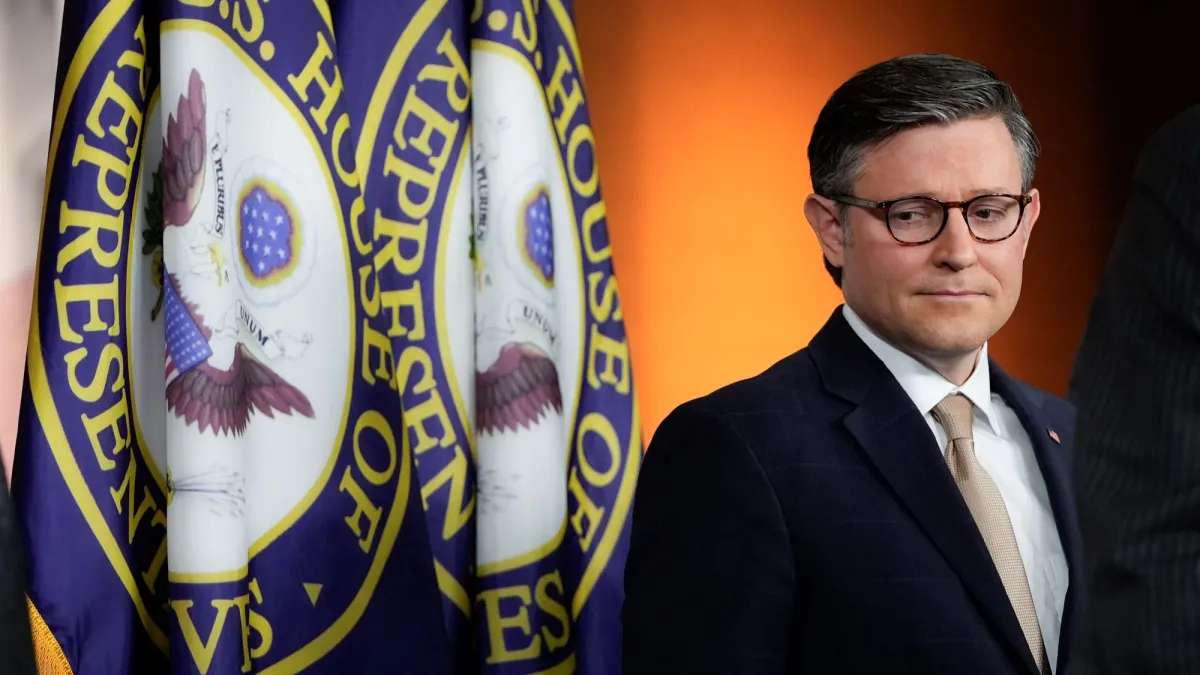
House Republicans are entering what they hope is the final stretch of their race to pass their massive bill containing much of President Trump’s agenda, including tax changes that would cost a net $3.7 trillion over the next decade, according to the congressional Joint Committee on Taxation.
Three House committees — Energy and Commerce, which oversees Medicaid; Ways and Means, which handles taxes; and Agriculture, responsible for food stamps — have started or will soon begin marathon hearings today on their portions of the legislation, all of which are still subject to GOP infighting. More moderate Republicans worry about their party’s proposed cuts to Medicaid. Conservatives want steeper spending cuts, including to Medicaid. And blue-state Republicans aren’t satisfied with a proposed $30,000 cap on the deductibility of state and local taxes, though House Speaker Mike Johnson reportedly said he expects to settle that issue tonight.
Democrats, meanwhile, continue to slam the entire package as a sop to the rich, paid for by cuts to vital programs for the poor and middle class.
Big cuts to Medicaid: Republicans have proposed some sweeping changes to Medicaid, including new work requirements and tighter eligibility checks, though they did not include some significant changes that met with substantial pushback.
Rep. Brett Guthrie, the Republican chairman of the committee, defended the GOP plan, calling the changes “commonsense policies that will return taxpayer dollars to middle-class families.” The changes, he argued, would strengthen the program for people who need it most. “We make no apologies for prioritizing Americans in need over illegal immigrants and those who are capable but choose not to work,” he said.
Protestors interrupted the session early on, chanting, “No cuts to Medicaid” and “waste, fraud and abuse, my ass.” Capitol Police reportedly arrested 25 people.
The Congressional Budget Office estimated that the Medicaid changes in the GOP bill would cut deficits by $625 billion over 10 years. The work requirements in the bill would account for about $301 billion in savings over a decade. “That suggests a lot of people would lose coverage, either because they're not working or get caught in red tape,” Larry Levitt of the nonpartisan KFF healthcare foundation wrote in a post on X.
Indeed, CBO projected that the GOP plan would lead to 10.3 million people losing Medicaid or CHIP coverage by 2034 and 7.6 million going uninsured.
Rep. Frank Pallone, the top Democrat on the Energy and Commerce panel, said Republicans have broken a promise not to cut Medicaid benefits.
The costs of the GOP tax plan: The Joint Committee on Taxation analysis found that tax breaks in the bill, including an extension of expiring elements of the 2017 Republican tax cuts, would add about $5.7 trillion to the deficit. Nearly $2.2 trillion of that is the result of keeping in place the lower tax rates introduced eight years ago. The tax cuts would be partially offset by $1.9 trillion gained from other changes, including the rollback of a host of clean energy incentives.
The plan also includes new tax cuts proposed on the campaign trail by President Donald Trump:
- The elimination of taxes on overtime pay would cost about $124 billion;
- Ending taxes on tip income would add about $40 billion to the deficit;
- The elimination of taxes on car loan interest for vehicles assembled in the United States would add about $58 billion to the deficit;
- A new tax deduction for seniors would cost about $72 billion.
In all, those Trump promises would cost about $292 billion — and they are all set to expire at the end of 2028 to keep their cost from running higher. If those changes were made permanent, their cost would be far higher.
If the Ways and Means plan is made permanent, it would add $5.3 trillion to the deficit over 10 years, or $6.2 trillion including interest costs. “This would be (by far) the most expensive legislation since the 1960s,” budget analyst Jessica Riedl noted in a social media thread, adding, “Congressional Republicans are already on the record (in this bill) ensuring that tax cut expiration dates are all fake.”
The bottom line: Republicans still have some very significant differences to hash out. House Speaker Mike Johnson remains intent on passing the budget bill by Memorial Day or soon after, and he can afford to lose no more than three votes from his party. There’s a long way to go — and then the Senate will take its turn.